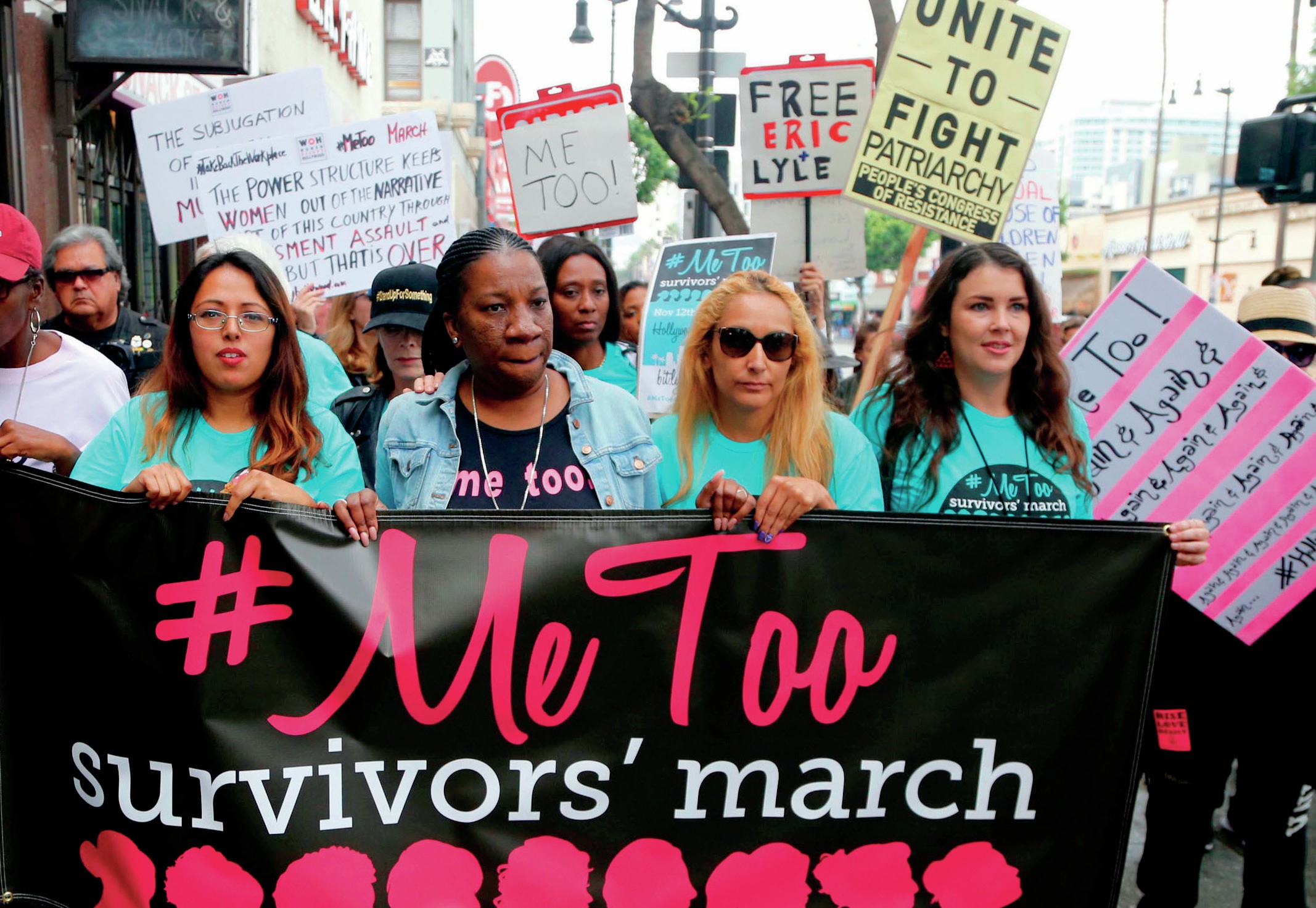
Sharing experiences of sexual assault is difficult and painful, so women and girls often stay silent. When a 13-year-old confided her sexual abuse to civil rights activist Tarana Burke in the 1990s, Burke felt unable to respond by saying ‘me too’. Burke set up a group against sexual violence called Me Too in 2006. However, it would have had little impact were it not for a single Tweet sent more than a decade later. What happened next illustrates the importance of social media, celebrity, and connective action in modern social movements.
In October 2017, in response to the allegations against Hollywood director Harvey Weinstein, the actor Alyssa Milano invited people to Tweet using #MeToo if they had experienced sexual harassment or assault. The next day, 30,000 people had used the hashtag. Ten days later over 1.7 million people, in 85 countries and 45% of US Facebook users had friends posting ‘Me Too’. Tweets by celebrities including Gwyneth Paltrow, Angelina Jolie and Lady Gaga attracted publicity for the hashtag as it went viral. It offered all women a platform on which to share their stories, with the expectation that they would be believed and supported.
Your organisation does not have access to this article.
Sign up today to give your students the edge they need to achieve their best grades with subject expertise
Subscribe




